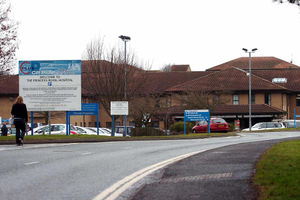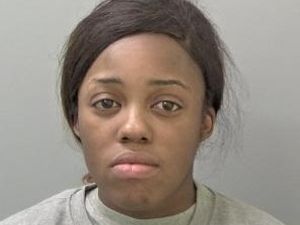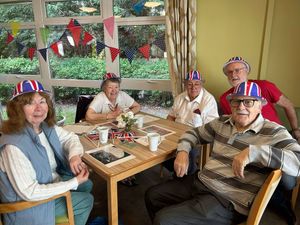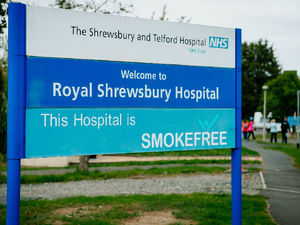Telford man's fatal brain bleed was missed by medics
A widow from Telford says she has lost her trust in doctors after her 40-year-old husband died from a brain haemorrhage which went undiagnosed for six days.

An inquest heard Darren Sidney Pearce died at the Princess Royal Hospital in Telford on February 11.
But his wife Lisa said she has lost all trust in the system since her husband died and felt his death could have been prevented.
Mr Pearce's death was caused by a subarachnoid haemorrhage and a ruptured berry aneurysm.
The hearing, at Shirehall in Shrewsbury yesterday, heard paramedics and doctors failed to spot the fatal condition.
The truck mechanic was pushing his mother in law in a wheelchair when he felt a painful ‘pop’ in his neck.
Over the next six days Mr Pearce saw a number of doctors and paramedics who said the symptoms were not presenting as a bleed on the brain.
Mrs Pearce said: “We were visiting my mother in the hospital and as he pulled her wheelchair out of the lift he let out an exclamation, and said he felt his neck going pop. He quickly became sweaty, clammy and agitated. I drove him home and he went rigid and started having a seizure which lasted a minute or two.
“I immediately called 999 because he was not responding to me. I was very scared.
“I have lost my trust in doctors completely now. They knew he was really poorly and I think he could have been saved.”
Mrs Pearce was initially told to take paracetamol and seek medical attention if his symptoms worsened.
On February 7 his GP Dr Mark James told Mrs Pearce to call 999 and ask for a CT scan when they arrived at hospital.
They were seen at the Princess Royal Hospital by consultant Dr James Risley.
Dr Risley said the patient was not presenting as a patient with a subarachnoid haemorrhage and decided, along with Mr and Mrs Pearce, not to go ahead with the CT scan.
“I wish I had all of the information available because I would have immediately CT’d his head. I didn’t have all of the information to hand,” he said.
“I wish I could go back in time and change my clinical judgement.”
The inquest heard the main symptom would have been a ‘thunderclap headache’, but Dr Risley said the patient did not present with a severe headache and he initially thought Mr Pearce had the flu.
On the morning of February 11, Mrs Pearce said her husband made a strange noise in his sleep. She gave him CPR before he was rushed to hospital via ambulance where he died later that morning.
The inquest was due to continue today.





